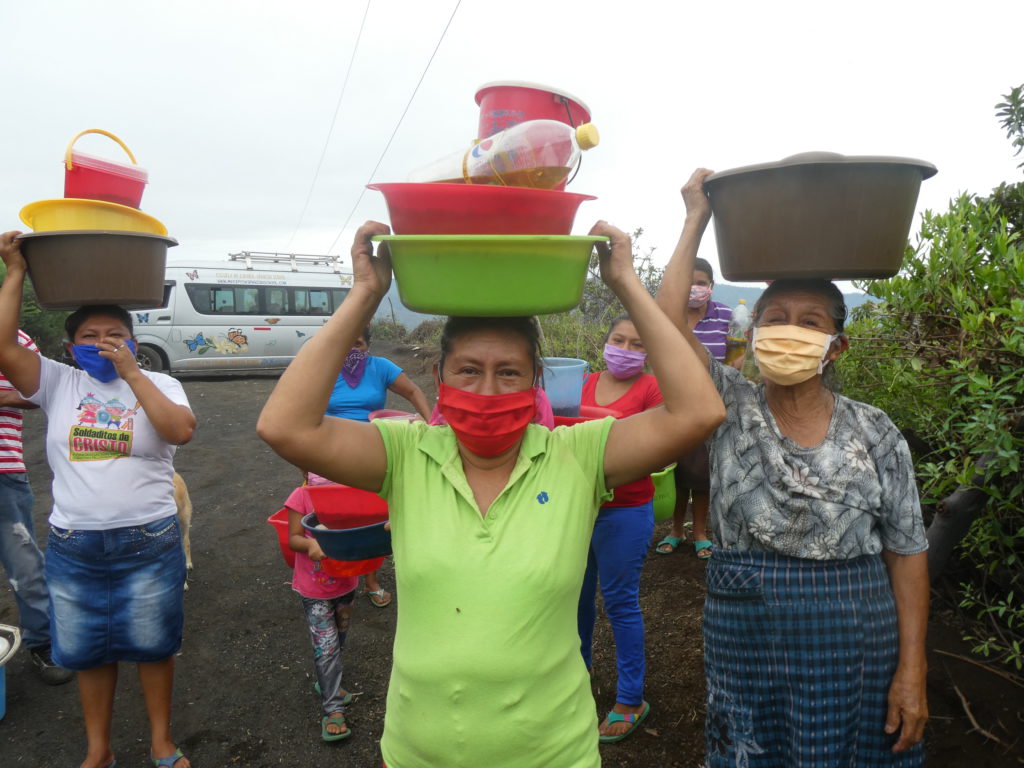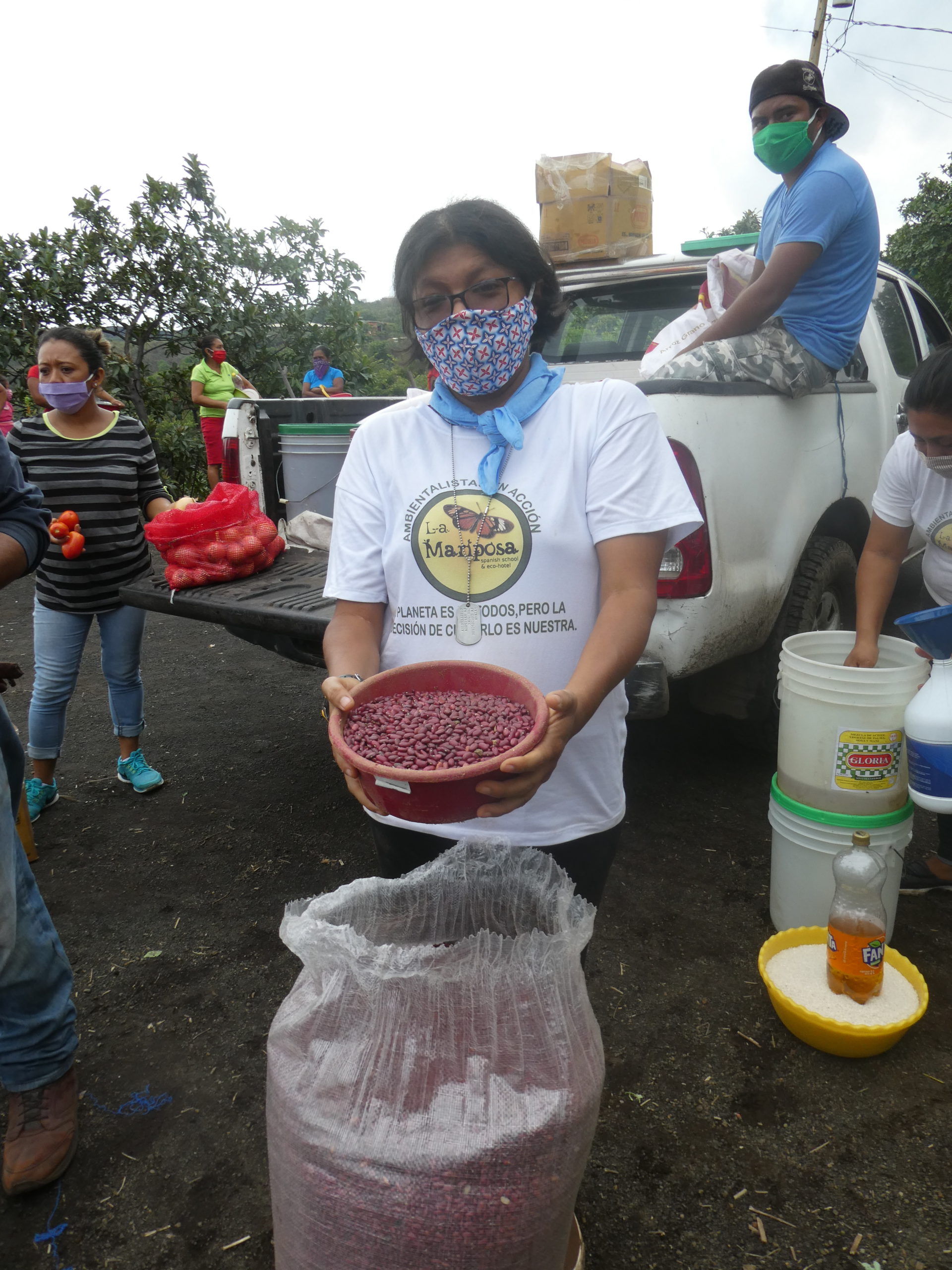Community Food Relief Project
Starting in May 2020, in response to the COVID-19 crisis, La Mariposa started a food program to bring food to families in three of our poorest local communties.
As the effects of the pandemic continue, and government aid to the people of Nicaragua remains nonexistent, new obstacles have emerged. With trade routes and imports/exports with countries like the US and Costa Rica being cut off, Paulette got word that the costs of basic food necessities such as rice, beans, and vegetables were beginning to soar. She made the move to buy a large store of rice and beans straight away before prices went higher to store in La Mariposa, and proposed a plan to distribute ongoing food relief to the most disadvantaged communities in Panama and Palo Solo, as well as to all the families of children who participate in Chispa de Vida.
Donate to the Food Relief Project
- $13 Feeds One Family for a week
- $1,500 feeds two entire community plus 30 Chispa de Vida Families for a week
- $5000 Covers entire feeding program for a month
All gifts in the USA are tax deductible. We are a 501c3 organization. Checks can be sent to: Mas Mariposas, 645 S Kohler Rd, Orrville, OH 44667
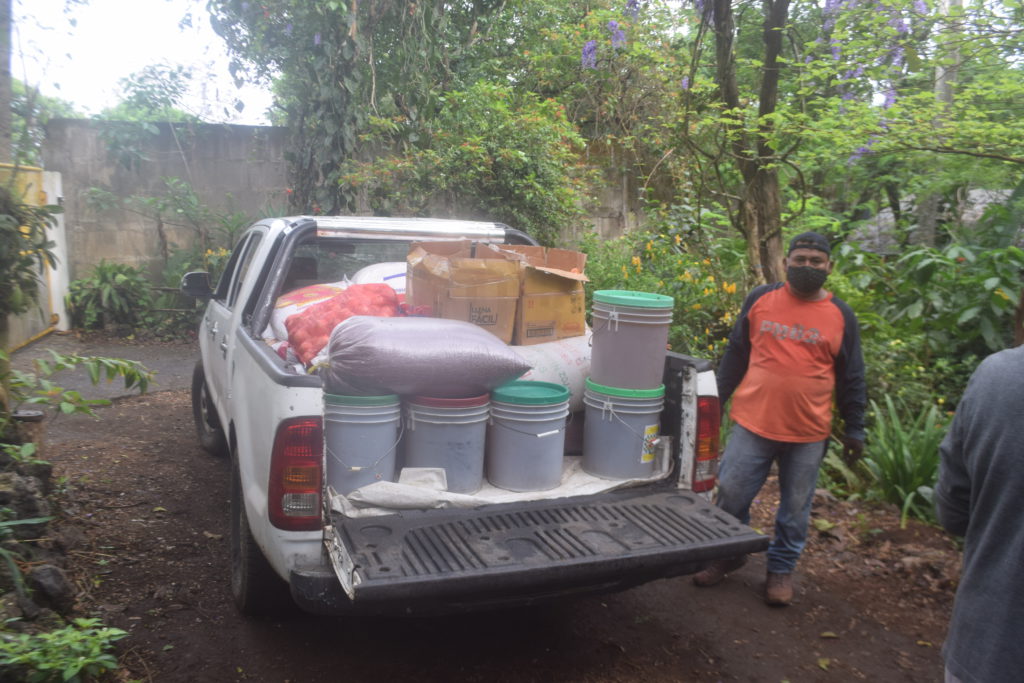
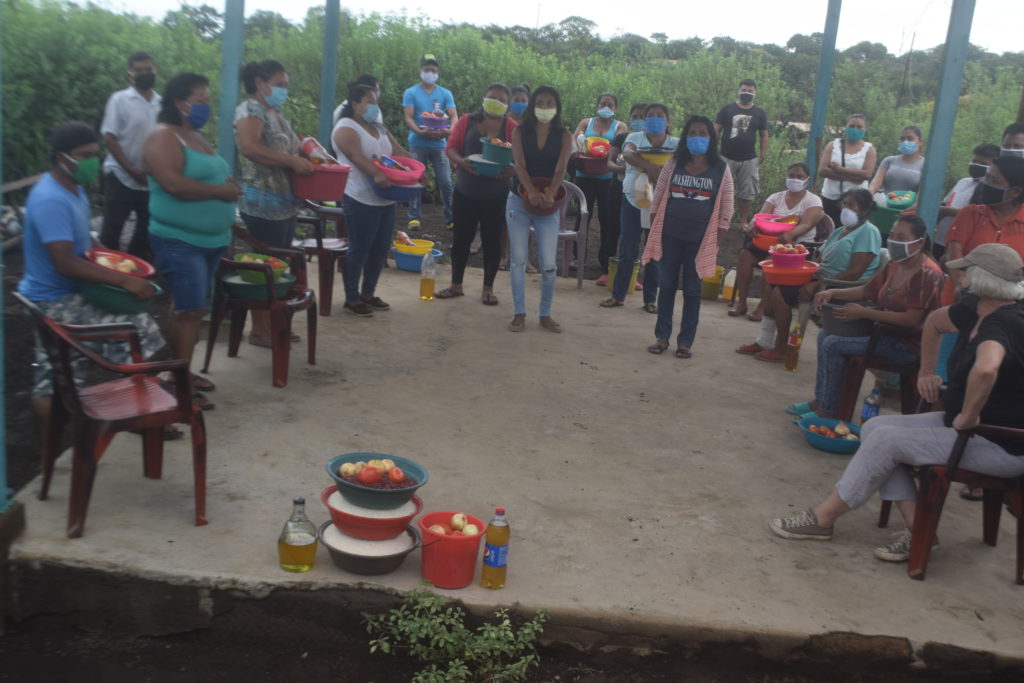
To better understand some of the background and logistics of this project, below is a summary provided by Paulette of the first trial run distributing food to families in the community of Panama:
LA MARIPOSA FOOD RELIEF PROJECT
June 2020
Some background on the barrio of Panama – This barrio stretches out along a ridge, part of which is severely affected by sulfurous gases passing overhead from the Masaya Volcano. This causes a range of health problems as well as making it difficult to grow any crops except pineapple and dragon fruit, which have, in the past few years, become popular “exotic” export fruit (especially dried). This in turn has led to larger landowners buying up land here for farming, resulting in a great deal of deforestation which only adds to the problems of poor air quality and rising heat.
Before the pandemic, many local people earned their living working in the “zona francas” (mostly producing textiles for export) or abroad in Costa Rica, for example. With the coronavirus closing those opportunities for work, unemployment has increased dramatically and there is no government provision to assist families in this situation.
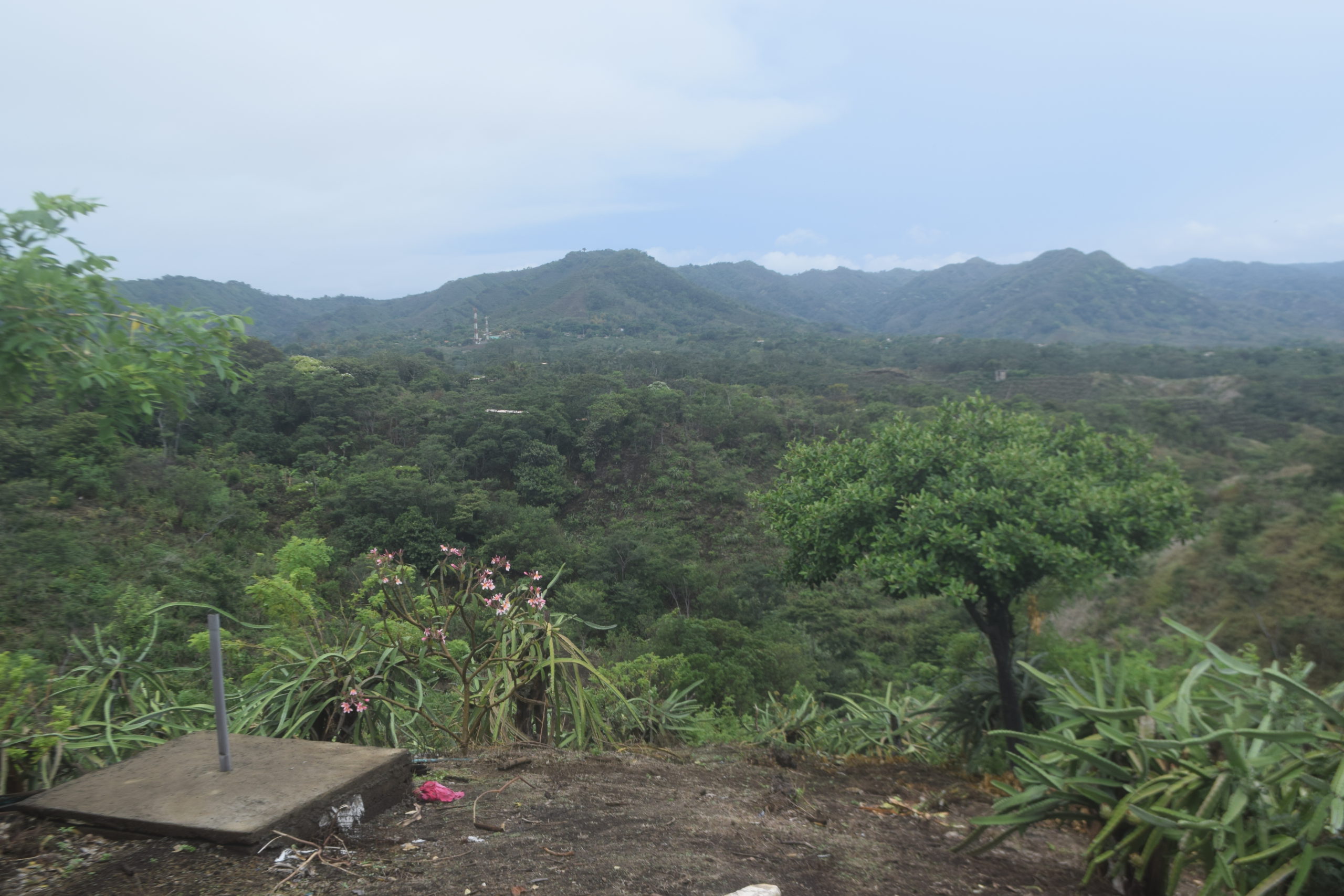
History of the work of La Mariposa In Panama – We have been involved with this barrio since 2007 (La Mariposa opened in 2006) working on the following projects:
- A reading and literacy project in the local school which closed in 2016.
- An English language teaching project for both children and adults since 2016 (it is currently closed due to coronavirus).
- Working with the local community to get water delivered to those households that do not receive municipal water – at present this involves sending 4 or 5 tankers of water per week into the poorest part of the community during the dry season.
- Together with the Health Center we have done several dog sterilization days, combined with vitamins and anti-parasite medicine.
- Participation in reforesting brigades by people in this community has been very high. Local people are very interested in planting trees – partly for shade but also because of an understanding that water shortages have in part been aggravated by lack of tree cover.
Test run for the Food Project in the barrio of Panama on May 27 –Ismael worked with Panama’s community leader, Freddy Mercado, to organize the food delivery. Staff from La Mariposa who helped to measure and hand out the food included Gonzalo, Leida, Ismael, Eli, and Guillermina. Social distancing was well ordered, face masks were required, and everyone even followed instructions to bring their own bowls and containers to carry their food home so that no plastic bags were necessary! The only issue (and we should really have anticipated it!) was that 20 more families turned up than we expected, so we had to go back to pick up extra food!
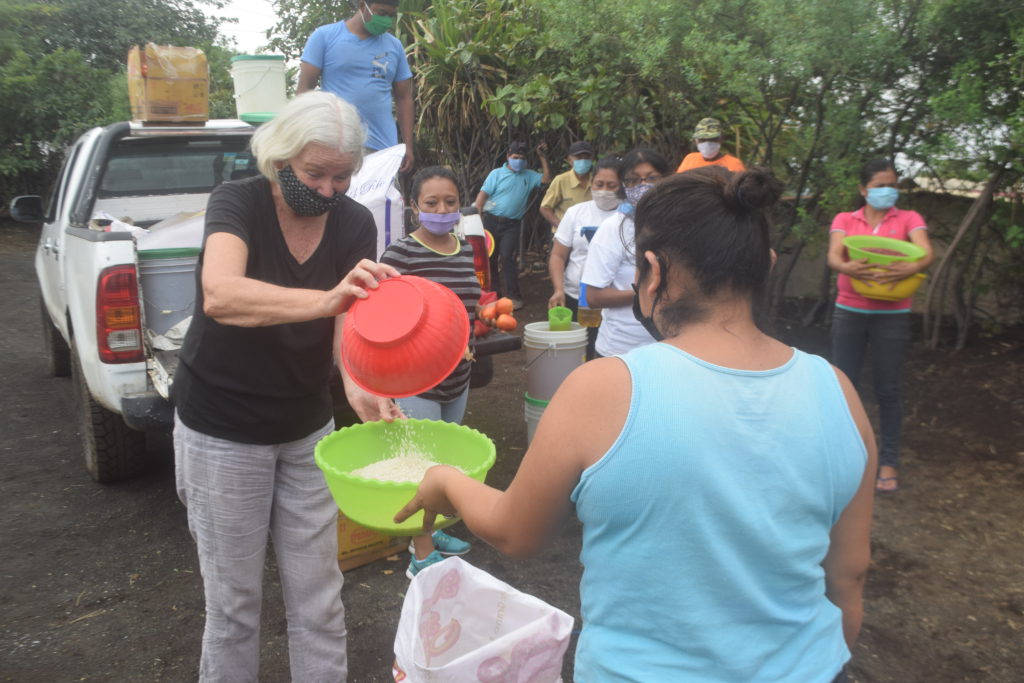
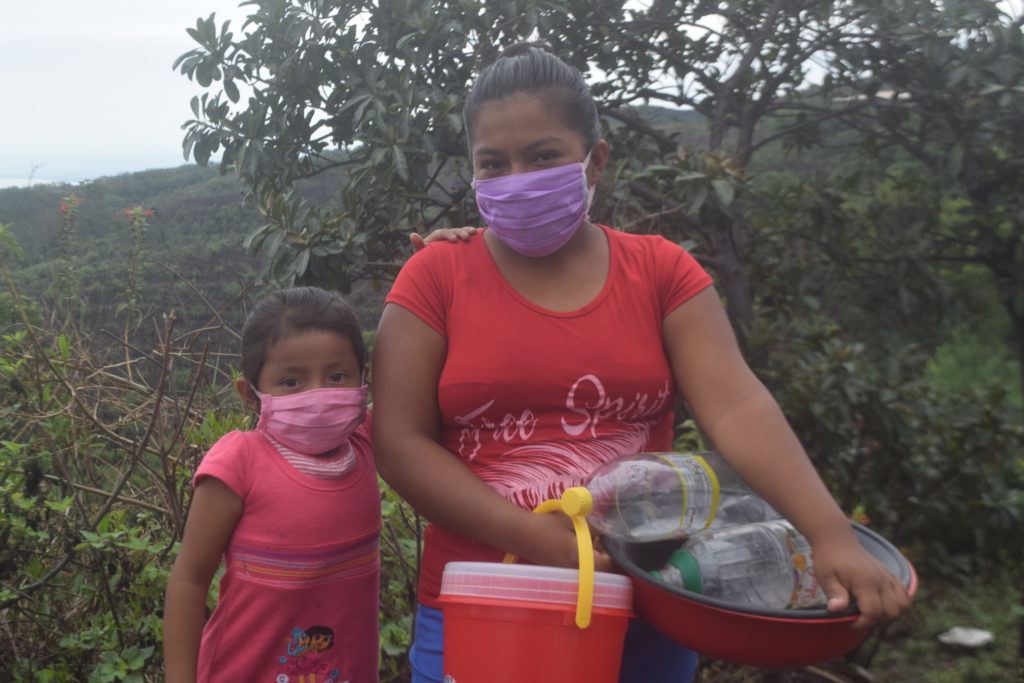
Some figures:
- Freddy had 98 families on his list, and we ended up serving 118 families!
- Each family received 10lbs rice, 5lbs beans, 1 liter of oil, 4 tomatoes and 4 onions.
- This added up to 12 sacks of rice, 6 sacks of beans, 6 large containers of oil, 2 boxes of tomatoes and 40lbs of onions!
- The total cost was $1,500 (not including transport). The cost of beans here has risen from 18 córdobasper pound to 28 in under two weeks.
A story from one of the families aided by the food project: Jose
Jose is 31 years old, and lives with his wife and 5-year-old twin daughters. He worked for many years in a zona franca outside Jinotepe where he was the supervisor of the finished product, T-shirts for export. He earned a basic wage of 2,500 córdobas per 15 days (about $70), but often doing a 12-hour day and earning a little more. With the political crisis of 2018 he was fired, got his job back in 2020 – only to be fired again when the factory closed due to coronavirus.
He now does the odd day’s work as he can get it; driving motor taxis, painting houses or gardening (clearly a great gardener despite the poor soil and conditions—we have sent him some tomato plants and a sack of organic compost). He has a small piece of land inherited from his father where he grows some dragon fruit – but since 2018 this has been increasingly difficult to sell. When sharing his story at the food distribution, Jose’s final comment, said with a smile, is that he still has hope!
